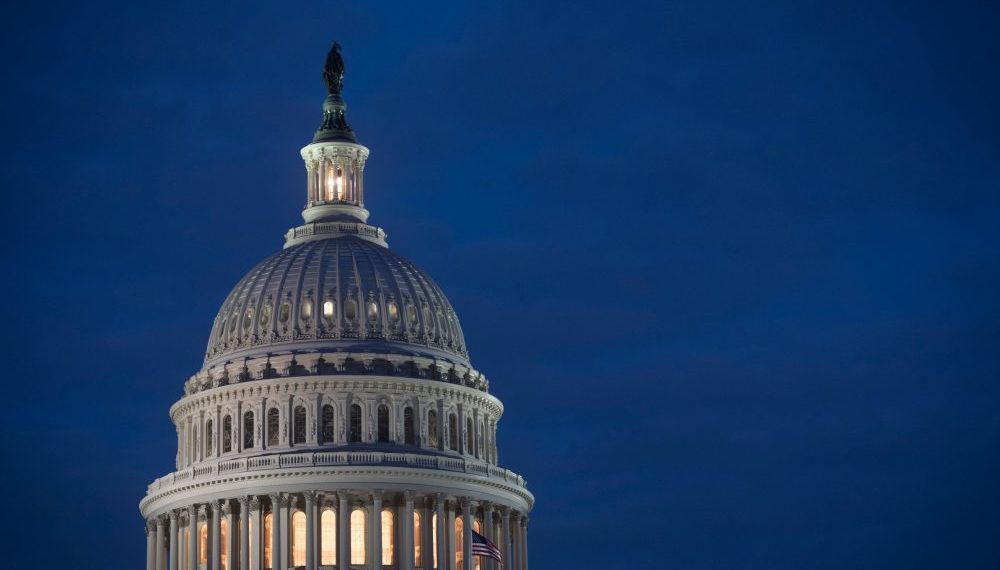One of the Democrats’ major prizes in the 2018 elections was the defeat of Wisconsin’s Republican governor Scott Walker. Walker had earned Democrats’ ire by pursuing an assertive conservative agenda which diminished the strength of public sector unions, restricted access to welfare benefits, and reduced spending. Before his defeat to Tony Evers, Walker had won three consecutive elections, including one recall attempt.
Walker’s parting legacy has been to strip powers from the office he departs. With the support of the Republican-controlled legislature, Walker has signed legislation which will prevent his Democratic successor from changing rules restricting welfare eligibility. The legislation also reduces the governor’s appointment powers. Further legislation blocks the newly elected Democratic Attorney General from withdrawing the state from a lawsuit against the Affordable Care Act (Obamacare) without the legislature’s approval.
Outrage has been directed against the legislature for restricting the executive’s power. But, an attempt by the legislative branch to constrain the powers of the executive branch is not in itself especially troubling.
At the federal level, both parties have supported numerous initiatives over the years to constrain the power of the executive. The War Powers Resolution of 1973 is a famous example of the federal legislature seeking to constrain executive authority.
More recently, some members of Congress have proposed removing President Donald J. Trump’s ability to impose tariffs without congressional approval, repealing a power which Congress gave the president during the Cold War.
These boundaries are constantly being tested and are in flux. During the Reconstruction period after the Civil War, the Republican Congress passed a law which limited the Democratic President Andrew Johnson from firing members of the Cabinet who had been appointed by his predecessor Abraham Lincoln. Johnson himself believed this constraint to be unconstitutional, and the Supreme Court later agreed.
Parliamentary Versus Presidential Systems
In parliamentary systems, such as in Canada or the United Kingdom, these conflicts between the legislature and executive exist but lack a “partisan” dimension because the executive branch derives its political mandate from a supportive legislative branch.
But, in presidential systems, the executive and legislative branches form separate electoral mandates. The fact that state legislatures try to remove powers from the governor of an opposing party is a logical consequence of a presidential system.
For years, political scientists have warned of the “perils” of this dynamic, which arguably leads to greater instability and gridlock. Yet, suggestions for transforming the United States – or any of its state governments – into a system similar to the federal and provincial governments of its Canadian neighbors seem beyond the pale.
Lame-Duck Sessions
The antics in Wisconsin reveal another, serious flaw in the American constitutional system: its prolonged periods between elections and the swearing-in of newly elected officials. In the federal Congress and in most states, voters can vote to remove their representatives but then the defeated politicians can continue to govern for two or more months.
These so-called “lame-duck” sessions often involve outgoing politicians hurriedly passing legislation for which they cannot be held electorally accountable and which might not be passed by the newly elected representatives.
Far from being hobbled, these lame-duck sessions can be periods of intense productivity. In 2006, Republicans passed 115 laws between losing the midterm elections and the new Congress being sworn in. In 2010, when the Democrats lost control of the House, they passed 100 laws before the new Republican members were sworn in.

Many other major democracies cope with near-instantaneous hand-overs of power after an election. In the United Kingdom, twelve days separated the defeat of the Labour government and the swearing-in of new MPs under a Conservative-Liberal coalition in 2010. When the Liberal Party won the 2015 federal election in Canada, Justin Trudeau and his new cabinet were sworn in within a fortnight.
Even in countries with more protracted periods of transition, it is not customary for the defeated representatives to continue to meet and pass laws.
There is precedent within the United States for the abolition of the lame-duck session. In Florida and Tennessee, state legislators assume office immediately upon election. In Delaware, Alabama, Indiana, and Nebraska, state legislators’ terms begin the day after their election. In Oklahoma, new officials assume office within two weeks of an election. In a handful of other states, state legislators take office before the new calendar year.
In Alaska and Hawaii, the newly elected governor is sworn in on the first day of December, rather than in January as is the custom in most other states. Kentucky and North Dakota also have December swear-in dates for their new governors.
Reformers ought to concentrate their efforts on bringing lame-duck sessions to a close throughout the United States and at the federal level.
There is no reason why defeated legislators should be allowed to serve in office and pass laws.
The lame duck should be shot dead.
Disclaimer: The views and opinions expressed here are those of the author and do not necessarily reflect the editorial position of The Globe Post.




















